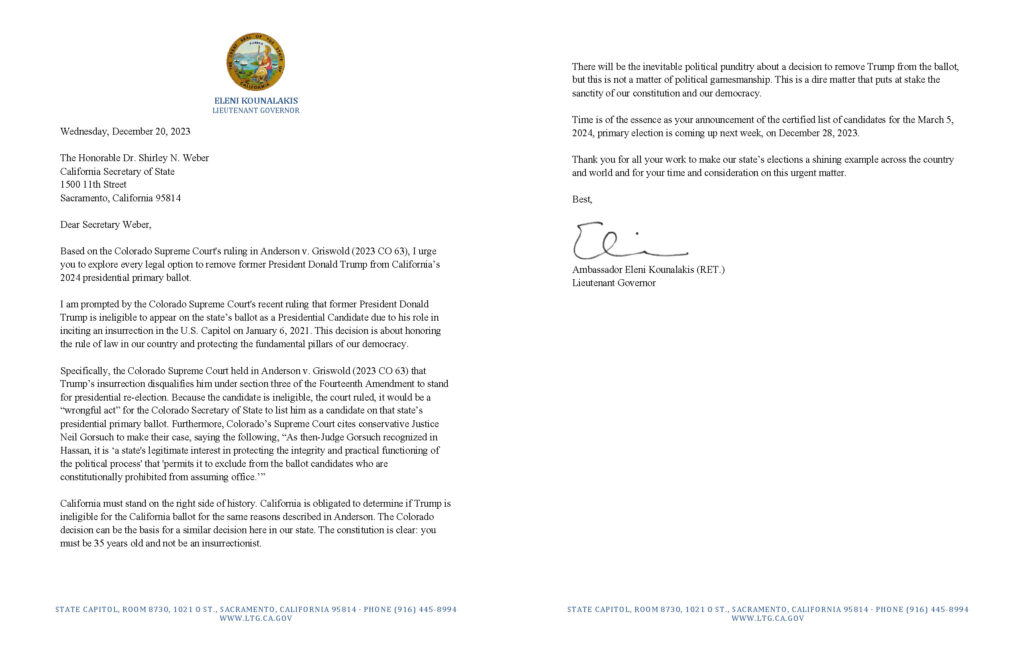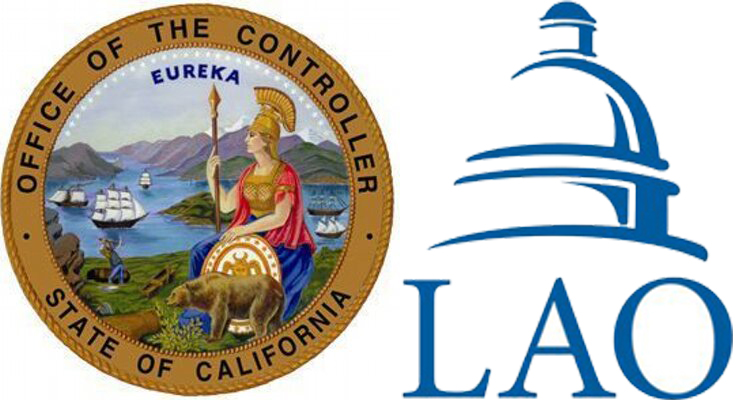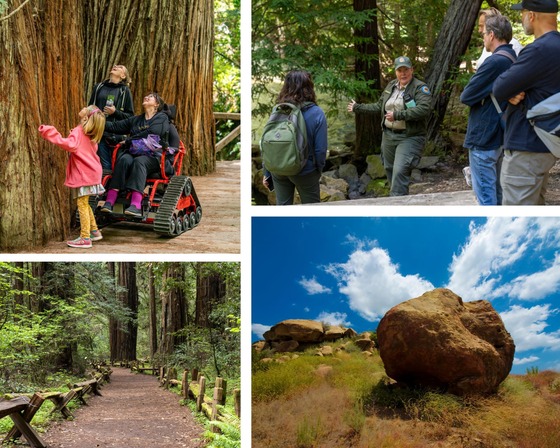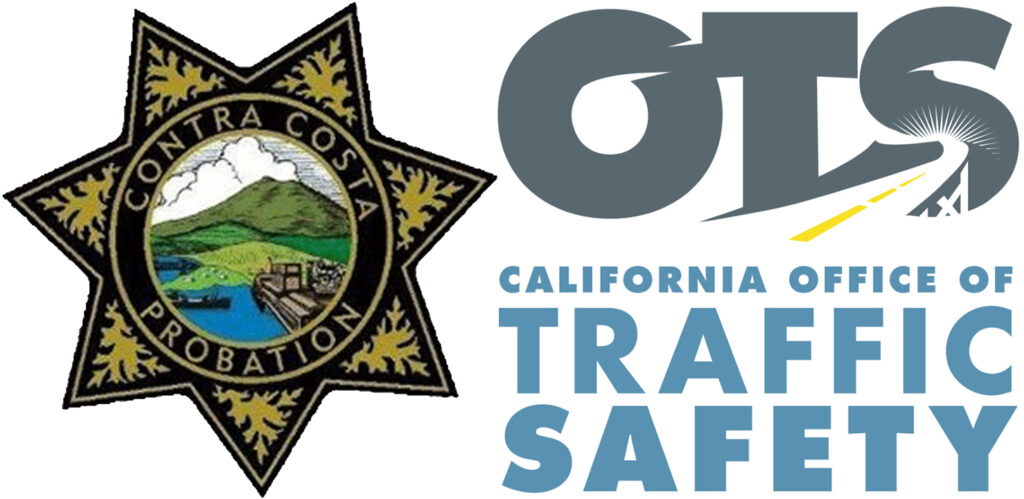CA Lt. Governor asks Secretary of State to explore legal options to remove Trump from ballot
Wednesday, December 20th, 2023
The state’s presidential primary is on March 5, 2024
By Allen D. Payton
Today, Wednesday, Dec. 20, 2023, California Lieutenant Governor Eleni Kounalakis sent a letter to Secretary of State, Dr. Shirley Weber, urging her to explore legal options to remove former President Donald Trump from California’s 2024 presidential primary ballot following the Colorado Supreme Court’s ruling in Anderson v. Griswold (2023 CO 63). The Colorado Supreme Court held that Trump’s role in inciting the actions at the U.S. Capitol Building on January 6, 2021, disqualifies him from standing for presidential election under section three of the Fourteenth Amendment.
The Lt. Governor claims the riot at the U.S. Capitol was an insurrection. However, as reported elsewhere, the former president has not been convicted of insurrection nor inciting one.

Kounalakis’ letter reads:
Dear Secretary Weber,
Based on the Colorado Supreme Court’s ruling in Anderson v. Griswold (2023 CO 63), I urge you to explore every legal option to remove former President Donald Trump from California’s 2024 presidential primary ballot.
I am prompted by the Colorado Supreme Court’s recent ruling that former President Donald Trump is ineligible to appear on the state’s ballot as a Presidential Candidate due to his role in inciting an insurrection in the U.S. Capitol on January 6, 2021. This decision is about honoring the rule of law in our country and protecting the fundamental pillars of our democracy.
Specifically, the Colorado Supreme Court held in Anderson v. Griswold (2023 CO 63) that Trump’s insurrection disqualifies him under section three of the Fourteenth Amendment to stand for presidential re-election. Because the candidate is ineligible, the court ruled, it would be a “wrongful act” for the Colorado Secretary of State to list him as a candidate on that state’s presidential primary ballot. Furthermore, Colorado’s Supreme Court cites conservative Justice Neil Gorsuch to make their case, saying the following, “As then-Judge Gorsuch recognized in Hassan, it is ‘a state’s legitimate interest in protecting the integrity and practical functioning of the political process’ that ‘permits it to exclude from the ballot candidates who are constitutionally prohibited from assuming office.’”
California must stand on the right side of history. California is obligated to determine if Trump is ineligible for the California ballot for the same reasons described in Anderson. The Colorado decision can be the basis for a similar decision here in our state. The constitution is clear: you must be 35 years old and not be an insurrectionist.
There will be the inevitable political punditry about a decision to remove Trump from the ballot, but this is not a matter of political gamesmanship. This is a dire matter that puts at stake the sanctity of our constitution and our democracy.
Time is of the essence as your announcement of the certified list of candidates for the March 5, 2024, primary election is coming up next week, on December 28, 2023.
Thank you for all your work to make our state’s elections a shining example across the country and world and for your time and consideration on this urgent matter.
————-
However, Trump’s lawyer, Alina Habba, said on Wednesday, she expects the Colorado state Supreme Court’s ruling will be overturned by the U.S. Supreme Court.


































